10 Tips for Women Health and Women's Health Advices

Related products
Advice for women's health means a set of instructions for women to achieve optimum health.” These instructions will help in improving women's health. Women's optimum health depends upon many factors, e.g., a healthy sleep balance. Eating a well-balanced and healthy diet, avoiding smoking, regular visits to the doctors and routine checkups, proper physical activities, healthy and strong relationships for optimum mental health, avoiding drugs and alcohol, spending leisure time on some useful hobbies etc. This article has detailed all these issues concerning women's health and has provided detailed instructions to optimise women's physical, reproductive, social, environmental and mental health. However, women should not hesitate to consult doctors in case of any health issues.
Advice for women's health means a set of instructions for women to achieve optimum health.” These instructions will help in improving women's health. Health is a balanced state of physical and mental well-being. From a broader perspective, health is a sub-discipline of medicine that deals with issues affecting a person's physical and emotional well-being1. Women's health is the branch of medicine that deals with diagnosing and treating various conditions and diseases that influence women's physical and emotional well-being.
Health is a diverse topic and encompasses many areas. Women's health is divided into two main types; physical and mental.
Physical health
Physical health is related to the functioning of different body parts of healthy persons. It includes the following types;
- Sexual health covers sexual health issues, e.g., menstrual cycle, pregnancy, childbirth, menopause, period, sexually transmitted infections (STIs) and birth control.
- Heart and cardiovascular health covers everything related to the heart and circulatory system.
- Cancers cover all cancer-related issues, e.g., ovarian cancer, breast cancer, mammography etc.
- Hormonal health covers issues, e.g., hormone replacement therapy etc.
- Bone health deals with bone issues, e.g., arthritis, osteoporosis etc.
Mental health
It encompasses social, psychological and emotional well-being. It covers various women's mental health issues, e.g., anxiety disorders, depression, schizophrenia, eating disorders, borderline personality disorder, bipolar disorder, obsessive-compulsive disorder (OCD), post-traumatic stress disorder (PTSD) etc.).
Talking about women's health is considered taboo even in advanced societies. The following figures will inform you about the importance of women's health2.
- Most women (75.7%) have reported good physical and mental health.
- Almost half (50.1%) of women in the UK reported having some long-term health issue.
- Allergy is the most common long-term problem reported by 36% of women in the country.
- Around a quarter (25.1%) of women reported that they experienced a problem in receiving healthcare services in the past 12 months.
- Less than half (43.9%) of the women reported having an ideal body mass index (BMI) between 18.5-24.9).
Despite all healthcare measures, women continue to experience various health issues, which will be explained in the following sections. Given the social taboo surrounding women's health and sexuality, women's health has always been a topic of popular perception and belief. Regardless of their factuality, these beliefs are passed from parents to children. These beliefs, along with their reality, are given below;
- Only the women planning for a child need gynaecological care (although various reproductive issues may need gynaecological care even without pregnancy, e.g., vaginal dryness, period issues, menopause, vaginal itching etc.)
- A woman doesn't need to visit a gynaecologist before adulthood (the teens need guidance about the symptoms of periods and how to deal with and prevent sexually transmitted infections)
- Women can adjust quickly to motherhood (transition to motherhood involve extensive physical and emotional stress)
- The gynaecologists are concerned only about the vaginal health (the gynaecologists specialise in dealing with all women's health issues, including depression, anxiety and primary care etc.
- Cancer can't be prevented (cancer is a multifactorial issue, and besides the unavoidable genetic factors, there are a lot of preventable lifestyle and nutritional factors)
- Women shouldn't worry about STDs without clinical signs (the popular perception about STIs is that they are associated with extreme pain and severe symptoms, but some STIs may be silently passed to the sexual partners.
Gender is not just limited to the sexual organs; every cell of the women's body has female gender and has some differences from the men's cells. So, there is no surprise that women's health, health issues, treatment options, medical devices, medications, etc., all differ between men and women.
That's why the nature and frequency of health issues faced by women are different from men. A classic example is heart health. Women are less likely to experience the classic symptoms of heart disease than men. Therefore, many diagnostic procedures are not optimised for women resulting in misdiagnosis or underdiagnosis. Women are generally diagnosed with heart diseases much later than men and are often diagnosed with other chronic conditions. The research on these differences in disease occurrence, health and outcome of illness differences is advancing rapidly.
The major ten tips for improving women's health are listed below.
- Have a Healthy Sleep Balance and Schedule
- Implement a Healthy Diet for Nutrients and Vitamins
- Stop Smoking and Consuming Tobacco to Avoid Lung and Heart Issues
- Have Regular Health Check-ups for Diagnosing Diseases Earlier
- Increase Physical Activity by Exercising for a Healthier Fat and Muscle Balance
- Have a Healthy and Happy Relationship and Social Life
- Consume Greens for Healthier Skin, Eye, and Nerve System
- Limit Alcohol and Drugs for Healthier Blood Profile
- Hydrate Body for Healthier Body Functions.
- Have Hobbies that Amuse and Provide Entertainment
Have a Healthy Sleep Balance and Schedule
Healthy sleep is critical for women's physical, emotional and mental well-being. An adult needs 7-9 hours of regular and uninterrupted sleep. Concerning rest, there are two essential terms;

Healthy sleep balance
A healthy sleep balance means the maintenance of the 24-hour clock in the body that regulates sleep and wake up cycle in the body. Like other bodily functions, rest is also controlled by a balance of hormones, particularly cortisol and melatonin—high cortisol levels during stress and emergency cause tiredness and anxiety resulting in partial or complete insomnia. Similarly, lower levels of melatonin also cause the same results.
So, achieving an ideal sleep balance revolves around balancing the levels of these hormones. In the case of chronic insomnia, medicines are needed to restore this balance. The stories of these hormones vary throughout the day. However, the normal range is3,4;
- Blood cortisol levels: 6-25 mcg/ dL
- Blood melatonin levels: 10-60 pg/ mL
Sleep scheduling
Sleep scheduling means developing a regular sleep and wake-up routine and following it strictly every day. Proper sleep scheduling helps you to achieve the desired daily sleep hours. The sleep schedule can be disturbed due to several factors, e.g., unexpected stress, a new job, relationship issues etc.
Sleep and women's health
You need to have a healthy sleep balance due to a variety of reasons. A healthy sleep balance and schedule benefit women in several ways, e.g., ease of falling asleep every night, a better mode and energy in the morning, and better concentration on your work.
What does the research say?
Many studies highlight the importance of a healthy sleep and sleep schedule.
A study published in the Journal of Women's Health in 2009 noted the association of healthy sleep with health factors, lifestyle and other socio demographic factors5. The data was collected from 959 women of adult age (18-64 years). It was observed that 27% of the correspondents had poor-quality sleep. The multivariate analysis showed that poor sleep was associated with psychological stress, sleep disorder and poor health. The study also showed that women having multiple jobs and consuming caffeinated drinks have more risk of poor sleep.
Various books published on the topic also noted these relationships. The book "Sleep and Women's Health" by Zippi Dolev also emphasises the association between hormonal changes during pregnancy, childbirth and menopause and difficulty falling asleep6. The book also discusses how modern technology, e.g., smartphones and the internet, are connected and how anxiety and depression influence sleep.
Implement a healthy Diet for Nutrients and Vitamins.
Eating a well-balanced and healthy diet is crucial to protecting women's health. Studies have found that almost 80% of premature deaths due to stroke and cardiovascular issues can be prevented through healthy habits, including a healthy diet and physical activities7.
The dietary strategies should focus on achieving the optimum nutrient balance in the body, which means a woman is taking the right amounts of macronutrients (proteins, carbohydrates, fats, fibre and water), micronutrients (vitamins and minerals) and calories (energy). A healthy diet will allow the women to lead a healthy life and have the optimum body mass index (BMI) of 18.5-24.98.
A healthy diet should include the following;
- Fruits and vegetables are rich in fibre, minerals, vitamins and antioxidants. The critical minerals for women's health are calcium, magnesium, iron, zinc, selenium and iodine, and the essential vitamins are folate, vitamin D, vitamin C, B vitamins etc.
- Whole grains, e.g., hulled barley, wild rice, oatmeal etc., are a rich source of B vitamins, fibre and proteins.
- High protein foods, e.g., poultry, eggs, fish, cheese, yoghurt, low-fat milk, lean meat etc., will strengthen skin, bones and muscles.
- Drinking fresh water keeps you hydrated without taking in extra calories.
Stop Smoking and Consuming Tobacco to Avoid Lung and Heart Issues
Smoking is often adopted as a fashion, resulting in a prolonged addiction with severe consequences for heart and lung health. Smoking is a risk factor for cardiovascular diseases. To understand its importance for women's health, consider the following facts9;
- According to the NHS, smoking caused 506,100 hospitalisations in England in 2019/20, similar to the last year but significantly higher than 461,700 hospitalisations in 2009/10.
- Total deaths attributed to smoking were 74,600 in 2019/20, a slight decrease from 77,000 in the previous year.
- According to ons.org.uk, 11.5% of women in the UK were smokers compared to 15.1% of men.
Smoking and women's health
Smoking damages women's health in a variety of ways. For example;
- The changes in the blood caused by smoking increase the risk of a heart attack.
- Smoking damages the arteries which supply blood to the arms and legs, a condition known as peripheral arterial disease. The damage to the arteries increases the risk of clots which can lead to gangrene, often requiring amputation of the affected area.
- The lump formed in the peripheral blood vessels also detaches and travels to the arteries in the lungs and heart.
- It also poses a severe risk to the lungs, causing a higher risk of;
- Chronic obstructive pulmonary disease (COPD)
- Chronic bronchitis
- Emphysema
- Lung cancer.
The common symptoms of these lung diseases are unexplained fever, weakness and pain, rust-coloured or bloody sputum, wheezing, breath shortness, chest pain and coughing.
Have Regular Health Checkups for Diagnosing Diseases Earlier
Medical tip for women: Never ignore any abnormal signals produced by the body.
Women should visit the doctor whenever they feel something wrong with their health. The doctor will make a diagnosis of the condition before treatment. What is the diagnosis? "Disease diagnosis is the identification of a disease, an illness or an injury from the signs and symptoms it causes." The physician takes the help of physical examination and various diagnostic tests, e.g., blood tests, cultures, biopsies, imaging and ultrasonography techniques etc., to conclude10.
The diagnostic tests target various diseases, e.g., reproductive diseases (PCOS, STDs, cystitis, HIV/AIDs, uterine fibroids, cancer, endometriosis etc.), bacterial and viral infections, dental conditions, metabolic diseases (e.g., acidosis, hypercholesterolemia, diabetes etc.), cancers (e.g., breast cancer), cardiovascular diseases etc.
Even if you are perfectly healthy and delicate, you must regularly visit the healthcare provider for routine physical examinations and checkups to ensure the issues are caught up well before becoming too serious. Regular checkup is essential because many serious health issues are silent in the initial stages, and the symptoms appear only when the condition has advanced too far. The ideal frequency for examination depends upon your age, health condition and various other factors. However, ideally, a person should visit the healthcare provider at least once in 1-3 years up to 65. After this age, the checkup frequency can be increased to once a year or more if needed. Women should have a thorough blood test every year, and women over 40-45 years of age need yearly cholesterol tests. Women over 45 should undergo a colonoscopy (to diagnose colon cancer) after every 10 years and a flexible sigmoidoscopy every 5 years.
The frequency of checkups after 40-45 years should be;
- Pap smear for cervical cancer every 2-3 years
- Mammography for breast cancer every 1-2 years
- A bone density scan at 65.
- Visit the dentist and occultist every 2 years.
Remember that these frequencies are just for guidance, and the doctor's instructions should be preferred.
Welzo offers various diagnostic tests related to women's health.
- Female fertility test to detect the levels of hormones associated with female fertility, e.g., FSH, LH, etc.
- Progesterone test, to detect and monitor the progesterone levels during pregnancy
- The AMH test to monitor ovarian reserve - find out more about When should I take an AMH (Anti Mullerian Hormone) blood test? Pregnancy test for early pregnancy
- Pregnancy progress test to monitor the progression of pregnancy.
- Hair loss test to diagnose causes of hair loss
- Menopause test to monitor various hormones involved in menopause
- PCOS test to monitor various hormones associated with PCOS
- Energy test to identify the causes of low energy
- Sports performance test to monitor how the body is responding to the exercises
- Nutritional deficiency tests to diagnose the deficiency of essential nutrients
- Iron test for iron deficiency
- The well-woman blood test is the most comprehensive test kit offered by Welzo. It detects many biomarkers related to women's health and helps diagnose any issue immediately.
Click here to visit Welzo, explore the testing products, and order the desired one.
Increase Physical Activity by Exercising for a Healthier Fat and Muscle Balance
Physical activity is often discussed whenever there is a talk about physical health. What is healthy physical activity? Physical activity is a voluntary body movement produced by the skeletal muscles at the cost of metabolic energy11. All routine activities of variable intensity during the day and night come under this category. Physical activities include incidental activities, which are performed as a part of routine life, and exercise activities, which are performed with a specific purpose.
What are the best exercises for women?
Defining a "best exercise" is tricky as it can vary from person to person. It also varies according to the purpose of the exercise, i.e., you are choosing an exercise for fitness or body shaping. However, modern workout techniques only require using inexpensive equipment or joining a gym. These techniques use the weight of your own body to provide exercise to your muscles. Here are some best workouts for women's health13.
Step-ups
The low impact and milder step-ups using a bench or a sturdy box are a great idea. They help the women's body build strength, stabilise, and balance.
Wall sits
According to research published by Southern Illinois University Carbondale, this simple exercise is highly effective for the quads, hamstring, and gluteal muscles12.
Squats
Various squats (e.g., weighted squats, air squats, sumo squats, side-step squats, and jump squats) are worth trying. You can add more resistance by holding a weight in your hands.
Lunges
All types of lunges (the back, side-to-side, and front lunges) target the large muscles in the lower body. The jump lunges are particularly effective at increasing the heart rate.
Planks
Planks are among the best-stabilising workouts and are beneficial for the whole body. Try the side plank or the forearm plank and add more resistance through weights if possible.
Rope jumping
Jumping a rope is one of the oldest and best exercises. This exercise boosts cardiovascular health by providing whole-body movement. It is a highly compact and affordable exercise for athletes and the general public.
Mountain climbing
Mountain climbing increases cardiovascular stamina, endurance, and strength. Try these activities at variable paces to adjust to your physical health and gradually increase the intensity to engage the whole body and increase your heart rate.
Burpees
It is an excellent finisher for many workouts and is excellent at increasing the heart rate rapidly. The tabata style using a 20-second push followed by a 10 seconds rest is very effective. Repeat it 5-8 times to achieve a full-body workout.
Dips
Household furniture, chairs, and couches can be suitable substitutes for gym equipment and help provide various movements. The dips using the couches, tables, and chairs can be helpful to target the tricep muscles.
Pushups
Although pushups move almost every muscle, they are particularly effective for core strength and the muscles in the upper body. The pushups can be modified in many ways, e.g., against the countertop, dropping the knees, and adding more weight if you can handle more.
Step-ups
This exercise targets the hamstrings, glutes, and quadriceps. Stand before a step or bench and firmly place your left foot on it. Keep the core engaged and the chest straight. Press the left foot on the step and gently push the body up until the left leg is straightened. Stay upright, and keep the weight evenly balanced. Complete the step by backing down the lower body until the right foot touches the floor. Do at least 10 repeats and add more repeats after changing the sides.
What type of exercise helps for what types of health in women?
Various types of exercises have varying impacts on general health. Generally speaking, four different types of exercises aim to achieve that stability, flexibility, strength, and aerobic stamina. The health benefits of the exercises include structural well-being and improved cardiovascular and mental health. Several pieces of research have shown that regular exercises also protect against obesity, and chronic conditions, e.g., arthritis and excessive weight gain. Regularly exercising is one of the best options to increase longevity and improve overall health.
Let's know what type of exercises you should use for desired benefits.
For balance and mobility
Stability training helps improve balance by improving the neuromuscular system, which is responsible for body posture and movements. Regularly performing stability exercises also helps prevent the risk of knee and ankle injuries. Stretching before and after an exercise also adds to overall flexibility and mobility.
For better weight management
Almost every exercise burns some calories. Several scientific studies have attested that regular physical exercises, particularly aerobic ones, help maintain weight and reduce the risk of obesity14. Aerobic exercises boost the metabolism by increasing muscle mass, which helps the body burn extra calories. Vigorous aerobic exercises also increase energy expenditure. Similarly, high-intensity interval training (HIIT) involving short bursts of intense physical activity followed by short recovery periods also increases metabolic rate and helps burn calories.
Boosting the mode
Regular exercises also have a positive impact on your mood. Engaging in aerobic exercises, e.g., running and cycling for 15-30 minutes regularly several days every week helps lower the symptoms of depression and anxiety, improve self-esteem and provide emotional resilience14.
Better cardiovascular health
Resistance training helps manage and prevent type 2 diabetes because it can decrease visceral fat. It also improves insulin sensitivity and decreases the HbA1c, an important indicator of blood glucose management. It also helps lower bad cholesterol (LDL) and triglycerides, the main culprits of compromised cardiovascular health.
Strong Joints and bones
Resistance training and aerobic exercises preserve bone mass and stimulate bone growth. The weight-bearing exercises preserve and improve adult bone density. Weight-bearing exercises, e.g., hopscotch, running, tennis, and rope jumping, improve bone health in children whose bones are under development.
For Pregnancy
Some exercises are safe and, in fact, usual during pregnancy. These include strength training, lower-impact aerobic exercises, pilates and yoga classes, bike riding, swimming, and walking15. These exercises improve the muscle toon and help to manage the muscle cramps. However, always remember to consult the gynaecologist before choosing anyone.
During menstrual period
During the first lighter days, aerobic exercises of moderate intensity, e.g., light jogging or walking, can be helpful. These exercises can lower the risk of abdominal cramps and bloating. Aerobic exercises also release endorphins, the so-called happy hormones that help manage stress during menstrual periods.
Have a healthy and happy relationship and social life
The strength of relationships also influences the physical and mental well-being of women. Strong social connections and healthy relationships have numerous benefits, e.g., higher self-esteem, lower depression and anxiety, more cooperation and trust, and greater empathy. These factors can contribute to a robust immune system to help ward off diseases and lengthen your lifespan. Although these factors are very promising, they also generate a follow-up effect. It means the people will tend to be closer to you and spend more time near you, thus creating a sense of social usefulness and connectedness with the connected loop of physical and mental well-being.
Various types of relationships can help you to grow. In short, spend as much time as possible with the people that make you feel better. Try to focus on and develop the following type of relationships;
Intimate relationships
These relationships exist with the people who are very close to you and have the most love and care for you. These include close friends and family members.
Relational and occupational connections
These relationships develop based on shared interests, including workmates, colleagues, students, teachers, and clients.
Collective connections
These relationships are shared in the form of social groups and affiliations and include people with shared faith, shared profession or shared culture, linguistic and national/ regional identities, etc.
Use more ways to stay connected with people, arrange meetings, and share your interests with them. Use social media as and if possible.
Consume Greens for Healthier Skin, Eye, and Nerve System
It's widespread to go for dietary supplements to get essential vitamins. The natural sources of vitamins which are beneficial for the overall health of your skin, eyes, and nervous system are often ignored. The main advantage of using plants to boost your vitamin reserves is that they are a complete package for women's health without any side effects of supplements.
For skin
When it comes to your skin, include the followings greens in your diet;
- Sweet potatoes which are the source of beta carotene, a precursor of vitamin A16. Vitamin A helps in keratin production, improving skin tone and making it young and healthy.
- Avocados which are a rich source of Vitamins (A, C, and E) and fatty acids. These vitamins, particularly vitamin C, boost collagen production, which helps avoid wrinkles.
- Leafy greens, e.g., spinach, swiss chard, kale, etc., are a treasure of valuable nutrients for your skin and hair.
- Including water-rich greens, e.g., cucumber, lettuce, watermelon, and juicy fruits, will improve your skin by keeping the body hydrated.
For eyes
Eyesight issues are often linked to aging and severe eye strains. However, studies have shown that some nutrients are precious for the eyes, and their deficiencies could also result in a decline in eye functions16. The essential nutrients for eye health are vitamins A, E, beta carotene, copper, zinc, lutein, copper, omega-3 fatty acids, and vitamin C. The more common and rich sources are;
- Sweet potatoes
- Carrots
- Leafy greens, e.g., collard, kale, and spinach
Nervous system
The essential nutrients needed for a healthy and sound nervous system are fats, antioxidants, B vitamins, and a variety of minerals and other micronutrients. Try to include the following greens in your diet;
- Avocados are a treasure of healthy fats and potassium. Healthy fat improves nerve cell regeneration , while potassium has a role in generating and conducting nerve impulses.
- Sweet potatoes have vitamins C and A, which are essential antioxidants and help protect the eye cells from free radicals. Being rich in fibre, they also help manage blood glucose levels.
- Fruits, e.g., watermelon, oranges, red grapes, cherries, peaches, and berries, are rich sources of antioxidants. Include at least one fruit in your daily diet.
- Leafy greens, e.g., asparagus, spinach, and broccoli, provide B vitamins, which have a role in the generation of nerve impulses and nerve regeneration.
Limit alcohol and drugs for a healthier blood profile.
Excessive alcoholism and drugs compromise your health and quality of life in several ways. More scientific evidence suggests that drug abuse and alcoholism are associated with various haematological changes, e.g., disturbances of haemoglobin levels, hematocrit, RBC count, white blood cells count, haemoglobin concentration, and mean corpuscular volume17. Serious medical complications can develop as a consequence of these changes. Here is a summary of the possible effects of alcohol and drug abuse on the blood profile.
Alcohol
The use of alcohol should be limited because;
- Alcohol intake can disturb the blood profile either directly or indirectly. Directly, it can cause toxicity of blood-forming organs, platelets, white blood cells, and mature and immature red blood cells18. The indirect effects are due to various metabolic disturbances created due to alcohol abuse, e.g., folate deficiency which causes various impaired production and functioning of different blood cells.
- Alcoholism can cause liver damage, adversely affecting red blood cells and the whole homeostasis. The overuse of alcohol is also linked to higher blood pressure, and chronic alcohol users have reported a chronic type of hypertension19.
Tobacco
Tobacco is known to influence the blood profile, and studies have shown that it causes an increase in MCHC, hematocrit, haemoglobin, and total and differential WBC counts20. It also lowers the production of immune cells, e.g., CD+ T cells which have an important role in immunity21.
Besides these, the other drugs well known to influence blood profile are cannabis, opioids, cocaine, inhalants, etc.
Hydrate Body for Healthier Body Functions
The body itself is more than 60% water and water is also needed to perform all life functions. So, the women need to drink plenty of fresh water to maintain water balance. There is no standard for how much water a woman should drink to hydrate the body for healthier body functions. The minimum quantity should be enough to avoid the risk of dehydration.
The essential functions of water which are essential for your overall health are22;
- It is necessary for a healthy kidney. The water dissolves the minerals and waste products and helps remove them from the body. A water deficiency can lead to the accumulation of minerals in the form of stones.
- Drinking water also helps treat and prevent the risk of urinary tract infections.
- Fresh water can help lose weight if used as a replacer for juices and sugary drinks.
- It helps in the digestion of foods. Your digestive system needs water for proper functioning, and a water deficiency can lead to, e.g., constipation and heartburn.
- It cools your body in summer. Water in the skin and blood vessels near the skin evaporates and helps lower the body's temperature.
- It protects the sensitive organs of the body. Nature has created sensitive organs, e.g., the brain, heart, etc., inside a fluid-filled sac. The water in these sacs provides cushion to these organs, which helps absorb the physical pressure.
- It improves skin tone and reduces the risk of premature wrinkling.
- Your blood is more than 90% water. Thus, an inadequate supply of water will compromise the supply of nutrients and oxygen to the cells and the removal of toxic waste.
- It keeps the eyes and mouth hydrated and clean. The fluid in the joints works as shock absorbers, and prolonged dehydration can lead to joint pain.
- The body needs water to remove waste through faeces, urine, and sweat.
- It is essential for the regulation of blood pressure. Dehydration can cause the blood to become thick and increase blood pressure.
- It allows minerals and other nutrients to reach all body parts and cells.
- It improves exercise performance, and studies have shown that dehydration or mild water deficiency can cause a substantial reduction in exercise performance.
To ensure the smooth running of these functions, drink a minimum of 3.7 litres of water if you are a male and 2.7 litres if you are a female22. The water intake could be increased in case of fever, dehydration, vomiting, diarrhoea, and excessive physical exercise.
Have Hobbies that Amuse and Provide Entertainment
Hobbies are the activities a person chooses for leisure time. It becomes a source of entertainment and amusement. Almost all hobbies have some benefits for women's health, but some are more beneficial than others. The women can choose any hobby according to their taste. Some examples to choose from are;
- Photography will excite the imagination and add creativity and fun to life. It will also help you to save your memories.
- Playing guitar is a relaxing hobby that allows a straightforward expression of internal emotions.
- Rock climbing is a very exhilarating and active hobby that increases your muscle strength and tone, adding thrill to life.
- Playing with electronics and working with machines and computer chips is also a useful and learning activity.
- Practising archery helps improve strength, coordination, and self-confidence.
- Adventure travelling, e.g., sailing, camping, river rafting, hiking, etc., add fun, excitement, and thrills to your life.
- Going to musical concerts is more enjoyable than listening to music on digital devices.
- Learning cooking and working on new cuisines relishes your taste buds.
- Indoor games, e.g., chess, poker, reading self-improvement books, biographies, etc., provide joyful and inexpensive entertainment.
- Fishing is an exciting hobby that will cause you to explore water bodies in your area.
- Gardening is a healthy and refreshing hobby that will create a beautiful landscape and reduce the grocery bill if you grow vegetables and fruits on your lawn.
What to Know about Women's Health?
Women's health is a very vast topic and involves many aspects, e.g., nutrition, health management, reproductive health etc. Some key issues about women’s health and specific tips by medical professionals are mentioned below for guidance.
What are the Common Women's Health Issues?
Health issues can be experienced by any woman and at any age. However, the following 20 issues are experienced by most women, and every woman should learn to handle them and work out to limit their risk;
- Heart diseases
- Stroke
- Diabete
- Maternal health problems
- Urinary tract infections (UTIs)
- Sexual health issues, e.g., STIs, HIV, etc.
- Osteoporosis
- Breast cancer
- Alzheimer's disease
- Domestic violence
- Sexual assaults
- Mental health issues e.g., depression, anxiety etc.
- Lifestyle issues e.g., obesity
- Drug abuse
- Digestive issues e.g., diarrhoea, vomiting, nausea etc.
- Hormonal issues during pregnancy, menstrual period and pregnancy
- Cancers
- Anaemia
- Autoimmune diseases
- Workplace burnouts
What are the Specific Medical Tips for Women's Health?
Women's health is a vast subject, and it is nearly impossible to summarise everything in the form of a few health tips. Nevertheless, the following health tips by medical renowned medical professionals can be helpful;
Have a healthy and balanced diet
A balanced diet should contain all of the essential nutrients for your health.
Eat properly cooked food
Ensure your food is cooked correctly and free from viruses, bacteria, toxic chemicals, and parasites. Keep care of your entire food chain, including purchase, processing, and storage.
Take healthy sleep regularly
The body needs 7-9 hours of regular sleep for proper relaxation. Sleep deprivation can cause several health issues, e.g., loss of concentration, poor mood, negative thoughts, physical exhaustion, and many more.
Take proper physical exercise
Proper physical exercise is among the best health tips for women of all ages. Lack of physical activity and exercise is the leading cause of health issues, e.g., heart attacks, obesity, diabetes, etc.
Drink plenty of fresh water
Water is essential for all life activities. So, consuming at least 3 litres of water daily is recommended to avoid dehydration and maximise other foods' health benefits.
Spend some time under sunlight
Sunlight is a natural healer. It increases the production of vitamin D inside the body, which improves calcium absorption.
Don't smoke
Smoking can be harmful to everyone, including women. Women can experience more specific issues, e.g., low fertility and pregnancy complications.
Regularly visit the doctor for checkups
Even if you are healthy, regular screening is essential to detect the diseases at the earliest stage.
Be careful of your mental well-being
A healthy body needs a healthy mind. Stay calm, don't panic under stress, find little happiness around you, and develop valuable hobbies, e.g., gardening, to keep yourself engaged. Alternatively, reading a book or playing outdoor games can be helpful.
How does fitness help Women's Health?
“Fitness means a state of being physically healthy and fit.” It covers all aspects of health, e.g., nutrition, disease control and treatment, reproductive health, psychological and mental well-being, etc. In the case of women, the spectrum of fitness is more and covers more topics, e.g., menstrual cycle, period, menopause, pregnancy, etc.
According to the Heart Research Association UK, an unfit woman (obese and overweight) is more prone to issues like cancers, bone and joint diseases, hypertension, type 2 diabetes, heart diseases, stroke, and breathing problems. Achieving ideal fitness through better disease prevention, reducing caloric intake, better nutrition, and improved physical activities are the best options to achieve fitness and avoid these issues. Achieving ideal fitness is also helpful for respiratory and cardiovascular health and is also helpful to deal with cognitive disorders, e.g., Alzheimer's disease, dementia, etc. Fitness also reduces sleeping issues, and research has found that regular exercise helps resolve the sleep issues, and the effects of aerobic exercises are very similar to sleeping pills23.
How to Prepare a Physical Exercise Plan for Women's Health?
The physical exercise plan is different for all women. It depends on various factors, e.g.,
- The age: For young girls, things are pretty simple. For women in their late 40s, consultation with a doctor is needed to choose a plan.
- The goals of exercise: The initial exercise plan should include only some components of fitness. Consult the trainer and physiotherapist to choose the initial goals and add more if possible. Intensity: it means how demanding physical activity should be.
- Time: Decide the best time for you and the session duration. A starter session should be 20 minutes long, which could be increased gradually.
- Type of activity: It means you must choose the activity according to your lifestyle requirements, e.gYoga, weight lifting, walking, dancing, etc.
- Physiological states e.g., pregnancy, lactation, and menopause influence the woman's body, and a woman should alter her exercise plans according to these factors.
- Diet is also essential to consider while choosing an exercise plan, and it depends on other health factors. The women should consult the nutritionist to choose the best diet for her health, e.g., a high-protein vegetarian or nonvegetarian diet for young women (20-25 years) who are working on building strength and muscles, a low-fat diet for women who are working to reduce weight and a non-diabetic diet for the diabetic women.
What does the research say?
A study published in the Journal of Human Kinetics evaluated the impact of different exercise plans on women's body composition. The study involved 89 women between 25 and 55 years who underwent various exercises for 16 weeks. Hydro gymnastics and strength training were observed to be better at reducing the fat percentage. All sorts of exercises showed better anthropometric benefits than the control group24.
What are the Common Mistakes for Women's Health?
Women, particularly those engaged in their careers, often make many mistakes, unknowingly of their consequences. The common mistakes are;
Not getting sufficient sleep
Unlike men, the consequences of sleep deprivation are far-reaching for women. Besides making them less motivated and lethargic all day, sleep deprivation can disturb the women's reproductive functions too. Various sources have provided different figures, but a Study of Women's Health Across the Nation in 2008 noted that more than one-third (38%) of women in their later years (40-55 years) experience difficulty in falling asleep25.
Wearing heels
Women may choose heels to adjust their height, but their regular use can cause bone and nerve damage, spider veins, and osteoarthritis.
Ignoring the pearly whites
Busyness in the daily routine can cause the women to become careless about their teeth, and they start turning yellow and decaying. A study published in the Contemporary Clinical Dentistry in 2019 noted that 7.8% of women in the age group (45-50 years) experienced tooth decay, an age considered too young to happen26.
Ignoring stress
Stress can be a natural silent killer, yet, it is often ignored, and many women don't even acknowledge that they are depressed. A study published in the Journal of Affective Disorders in 2021 noted that the prevalence of major and minor depression in the UK is 3.3% and 11.3%, respectively.
Missing regular checkups
Skipping regular checkups may not seem so dangerous if you are healthy. However, you can miss something significant.
Missing regular exercise
In later years, it becomes easier to skip exercises. However, fixing some time daily for exercise can save weeks spent in hospitals.
Comfort eating
Comfort eating can be very pleasing initially. However, it can turn things on for you as you age. Change your mode of stress relieving and choose some healthy means.
What are the Healthy Life Habits for Women's Health?
Women's health differs slightly from men's, so it needs more care. Adding some valuable habits into your routine can be life-changing. Here are seven tips for a long and healthy life;
- Start every day with a new mood. Do anything you can to achieve it, e.g., having a healthy sleep, having a good breakfast, and being in a good relationship. It's essential as women are more prone to mood fluctuations than men, particularly during pregnancy and perimenopause.
- Physical exercise or outdoor sports don’t need huge time commitments. It's essential because women often overestimate the time spent on sports.
- Start your morning with a warm drink, e.g., lukewarm lemon water or cayenne pepper. These drinks' antifungal, immunity-boosting, and digestion-aiding properties can bless your day.
- Reduce your screen time. Although it has become necessary, excessive use of cell phones, particularly at night, can do hell with your health and peace of mind.
- Focus on your room and make it a place you like. Those little decorations and lighting can boost your mood, particularly during the stresses of pregnancy.
- Speak for yourself when it's needed. It's important because many women fear speaking because they fear looking aggressive. Be firm and concise in your habits.
- Give some time to your body and listen carefully to its vibes. Look for any signal the body gives, e.g., pain, odour, discharge, etc.
What is the Women's Health Advice for Sexual Health?
Women's Sexual Health can be fun if they are careful about some little things. Here is some advice that can help immensely.
- Be clear and straightforward about your sexual needs. Talking about them can be uncomfortable, but even more uncomfortable is hiding them or expecting the partner to understand them all.
- Admit when uncomfortable with your partner, and don't hide your emotions.
- Resolve the issues surrounding your relationship, particularly intimacy.
- Understand your partner and come to terms with him. Reconcile your views about sex, romance, and pleasure to find common ground.
- Don't rely only on your partner for protection against sexually transmitted infections (STIs); focus on your protection.
- Go for routine testing of sexually transmitted infections and use emergency testing if you suspect your partner has any STI.
- Vaccinate yourself against common STIs, e.g., hepatitis B.
- Reduce the number of intimate and sexual partners, and if possible, ask your partner to achieve mutual monogamy.
- Strictly follow or at least try to follow human sexual values, i.e., hedonism, relativism, and absolutism.
What is the Women's Health Advice for Mental Health?
Sound mental health doesn't mean being happy all the time. Good mental health means the ability to express all emotions, including happiness, excitement, sadness, anger, etc. Some good habits will improve women's mental health, allowing them to perform all functions. The following tips can be useful;
- Be careful and concerned about your finances and take personal control over them. Poorly managed finances can be a source of frustration and can jeopardise your emotional well-being. Get rid of your debts as soon as possible.
- Learning new skills will improve your cognitive functions and keep you engaged and mentally satisfied.
- Being in strong and healthy relationships is vital for women's mental health. The importance of these relationships increases during pregnancy, childbirth, period, and menopause.
- Learn to adapt to any changing situation. Social and psychological rigidity can be harmful.
- Don't hide your emotions; expression is significant, particularly when anxious or worried.
- Engage yourself in the present, don't entangle yourself in memories, and contribute productively to your surroundings.
- Identify the factors negatively affecting women's mental health, e.g., sleep deprivation, hunger, eating disorders, depression, etc. Take the help of professionals to cope with the situation.
- Practice mindfulness meditation exercises for some time daily. These exercises will increase alertness and allow you to live in the moment.
- Appreciate good things around you and show gratitude for the positive people and things around you.
- Building new relationships and social connections and social connectivity improves mental well-being.
- Show kindness, love, and affection for yourself, and appreciate yourself for your efforts.
- Eat healthy, nutritious food. Like any other body organ, the brain also needs nutrients for proper functioning.
- Learn how to manage stress. You can't escape stress; however, with proper management practices, you can learn how to reduce its impact on your life, resulting in major depression.
- Spend some quality time with your family and friends.
What is the Relation between Women's Health and Sleep?
Sleep is not just spending a few hours with closed eyes; it's a complex activity with a deep relationship to women's health. These facts28 will help you to Gauge the importance of sleep.
- Women are more likely to experience sleep disturbances and insomnia. These issues are related to hormonal changes during pregnancy, menopause, and period. The studies have noted that the incidence of insomnia in females is 1.5-2 times higher than the males.
- Women tend to sleep more than men, and their bodies need more sleep for the same satisfaction levels. On average, females need 11 minutes of more sleep than men.
- Women have better sleep quality and duration than men. Their sleep patterns are also different from men's. They have different sleeping times, too, and most commonly, they sleep earlier than men and wake up earlier than men.
What is the Women's Health Advice for Physical Health?
Physical health refers to the overall condition of the body and covers various topics ranging from disease prevention and improvement of fitness. The topic is very vast. However, the following healthy habits will allow you to optimise your physical health;
- Cut back your intake of sugars, as sugars are empty calories without any nutritional value.
- Take the medications seriously and read the labels before using them.
- Expenses on smoking and drugs (if you are using any) can be disastrous for your pocket and health, even if you are well off.
- Be regular in your routine checkups.
- Avoid exposure to sunlight during the day's peak between 10:00 AM to 2:00 PM.
- Introduce and then gradually increase the physical activities in your life.
- Prioritise the nutrition
Why is Smoking Harmful to the Physical Health of Women?
Smoking can do hell with women's physical health. It is the leading cause of chronic bronchitis, chronic obstructive pulmonary disease (COPD), heart diseases, lung diseases, stroke, cancer, and pulmonary emphysema. It also increases the risk of various other issues, e.g., immune system diseases, eye diseases, tuberculosis, etc29.
What is the Women's Health advice for Emotional Health?
Emotional health means how you feel or think. Emotional well-being influences coping with stresses, relationship issues, and overall mental well-being. Here are some healthy habits that can help you to improve your emotional well-being.
- Focus on building emotional resilience. It means quickly recovering from stress. Improve your resilience through stress management and using all available resources in your community, including friends and family.
- Mindfulness is the practice of being completely aware of everything around you and living in the present. Take responsibility for your affairs and build mindfulness through practice and commitment.
- Sleep improves your reflexes, thinking power, and concentration. Do everything possible to achieve a quality night's sleep.
- Accept the loss and move on. Women often find it hard to accept emotional losses, e.g., the death of a loved one, the loss of a job, or a relationship loss. The feelings can be overwhelming, but taking counselling and the help of your family and friends can be helpful.
- Improve your social relationships as the sense of social uselessness and loneliness can harm emotional wellness. It is essential for women who have out-of-city jobs or study.
- Stress is unavoidable, particularly in modern life. Managing them can be challenging. However, it is possible. Learn healthy ways to cope with stress, e.g., play outdoor games, go out, etc.
Why does Monotony Harm Women's Emotional Health?
Monotony means a repetitive, tedious routine which needs more variety and innovation. Monotony can be experienced everywhere, in the diet, at the workplace and home, hurting your emotional and mental well-being. The women who spend most of their time in isolation and following the same routine live in continuous boredom and stress. The women spending too many years in this condition can develop chronic boredom, leading to many other issues.
According to many experts, boredom is one of the early indicators of stress and can also be a trigger.Boredom and monotony are bad In themselves, but these things can also lead to frustration and aggravate other emotional issues, e.g., irritation and anger30. It often becomes very difficult to draw a line between relaxation and working. Alongside a leading factor responsible for poor mental health, monotony can also contribute to the development of more serious issues like depression major, feelings of inadequacy, self-shame and self-hatred.
What is the Women's Health Advice for Social Health?
Social Health is an important aspect of overall health and is included in the WHO definition of health. Individuals can also act and handle different situations based on their social conditions. Social wellness and health influence how a person experiences the world around him. It is becoming increasingly compromised due to decreased face-to-face communications due to digital networking. Here is some specific advice for your social well-being.
Work on better communication: It's a hard skill and requires constant effort. Investing some time in better social communications promises good returns. Some areas to focus on are improving posture, eye contact and listening skills. These skills will allow you to fit into various social roles, i.e., friend, parent, employee, employer, spouse, leader etc.
Follow a healthy life routine: A healthy routine will have a positive impact not only on you but also on the people around you. Avoiding smoke and alcohol, maintaining an ideal weight, getting regular exercise and having a good sleep will help you feel good and also make you socially more acceptable.
Engage in extracurricular activities and hobbies:These activities reduce stress and improve your work-life experience. Going on a hike, joining an exercise class, a sports gym or a sports class can have a huge impact. Engaging your partner in these activities will be excellent as mutual interests deepen the relationships.
Practice self care: Sacrificing self for others will do little good. Give yourself some rest after achieving great milestones, and give yourself some reward. Such activities will ultimately strengthen your relationships.
Engage with good people: A good team around you will help you ward off negative emotions. Good relationships work on the give-and-take principles. Be also available for people when they need you too.
How does Family Health affect Women's Health?
Family health has a deep impact on women's health. According to the World Health Organization, family health means a state of positive and dynamic relationships among family members, allowing every member to experience optimum physical, social, spiritual and mental well-being both in the presence and absence of disease31.
Family Health influences women's health in the following ways;
- The family provides proper economic and social order, which affects the emotional and physical health of the women.
- Family provides essential healthcare apparatus, and according to Dr Carol Levine, "medicines can't work properly without medicine".
- Family establishes a pattern of social responsibility, exercises, preventive care and hygiene, thus facilitating the goal of achieving good health.
- A family allows women to establish caring and healthy relationships and adds resilience and self-worth to them.
- Healthy family relationships pave the way for healthy relationships in the future. As the children's first relationships are always with their parents, a healthy family environment increases their ability to form strong relationships in the future too.
- Healthy family relationships provide the foundation for the cognitive development of young girls.
- Living in positive relationships in a strong family decreases the risk and level of delinquency and depression in the adult women.
- The family imparts a sense of social identity, prevents the development of antisocial behaviours and promotes self-esteem.
What are the Women's Health Advice for Environmental Health
Environmental Health is a branch of public health which is considered the monitoring of and mitigation of those factors of the environment which influence human health. Environmental Health focuses on interpersonal relationships and the relationships between a person and their environment.There are some strategies which can help to improve women's environmental health.
- Substitute the chemicals in beauty products with natural ones: Harmful chemicals present in cleaning products can be harmful and toxic both for a woman and her environment. Try shifting to natural alternatives, e.g., essential oils, lemon juice, vinegar, baking soda, etc.
- Use recycled and eco-friendly materials: This strategy will reduce your environmental impact. Besides this, it will do a great favour to your environment. Small things like reducing plastic use, avoiding water wastage and turning off unnecessary electrical equipment can make a huge difference.
- Create some stress-free zone in the home: The home should be a place to relax after a hectic routine. It would be best to dedicate some corners in your room or lawn in your room for leisure time. Use some things here that make you happy, e.g., soft furnishings, candles, plants, photos etc. Add your ideas to make it more comforting.
- Include more natural life: The exposure to nature positively impacts women's physical and mental well-being and benefits the climate. Many options are available, e.g., using natural materials, e.g., bamboo in the home, indoor plants and a painting or photo of some beautiful landscape.
- Practice decluttering: Declutter is the practice of removing unnecessary items from the home or environment. A messy environment creates unnecessary stress through increased visual stimuli.
- Reduce environmental allergens: Regularly clean your home and make it dust-free. Design your homes to improve ventilation, use vacuum cleaners, and regularly wash your bedding. Investing some money in air purifiers can also be a great thing.
How does Water Quality affect Women's Health?
Water quality is important for all people, regardless of gender. However, given the complexity of female reproduction and their various health issues, girls and women are more vulnerable to the ill effects of poor water quality. Therefore, water quality and hygiene must be ensured at the workplace, schools, public places and homes. The issues with water quality pose the following issues32;
- It compromises women's safety as they may have to use outside toilets or share toilets with unsafe people, with the possible risk of disease transfer.
- Women and girls have some gender-specific needs which require segregated spaces and access to clean water and sanitary products. Poor water quality can compromise their pregnancy and menstrual hygiene.
- Poor water quality impacts the dignity of women as women are mostly tasked with bringing water home. Inadequate access to free water can require them to travel long distances to bring water, exposing them to the risk of attacks and violence.
- Poor water quality exposes women to waterborne diseases, e.g., cholera, typhoid, hepatitis A & E, toxoplasmosis, giardiasis, amoebiasis, cryptosporidiosis etc32.
What to know about Women's Anatomy in terms of health?
Women are amazing, and their bodies are fantastic. The woman's body is unique and can perform unimaginable tasks. But sadly, many women are not aware of their bodies. Here are some surprising facts about the female bodies33;
- The female uterus has enormous strength and growth potential. The female uterus is not more than the size of a small orange, just 7.9cm long, 4.5-6 cm wide and 2-3.5cm deep. However, it has enormous potential to grow and exceeds the size of watermelon during pregnancy. After delivery, it goes back to the same size. It can exert an enormous force of 1938N to expel the baby34.
- The sensitive clitoris keeps growing even when the other body parts have stopped growing35. At the time of menopause, the clitoris has become seven times the size at birth. It's the sole organ in the female body dedicated to pleasure and is highly sensitive.
- The vagina is a self-cleaning organ. The vaginal fluid is the cleansing fluid that allows the organ to cleanse itself without needing soap or other things. The acidic pH also keeps the growth of harmful bacteria at bay.
- Women have a higher pain-bearing threshold. Studies have shown that women are better at pain management, and they also appear to manage stress better than men32.
- Women have a better-smelling power. Many studies have found that women are much better at detecting smells, particularly body odour, than men36.
- Women can see and differentiate colours better than men. Their colour vocabulary is considerably higher than men.
- Women have asymmetrical breasts, and one breast is bigger than the other. The reasons are still debatable, but more than half of the women have this breast asymmetry.
- Women are more sensitive to sounds while sleeping. It is an evolutionary adaptation that allows the women to respond quickly to a crying baby. This fact makes women more likely to experience sleep disturbances. The female neck is more sensitive than men. Although it makes them more prone to neck pain than men, they don't have to turn their whole bodies like men37.
- Women's memory is sharper than men's. Many reasons are quoted, but the fact stays as it is 37.
What are the Differences between Male and Female Health?
Women's anatomy, physiology, and psychology differ starkly from men's. All these differences and their implications are detailed in the article. The women need to learn about them and take the help of health experts in case of any complexities. Please note that the information detailed in this article is intended for guidance and is not a substitute for professional care.



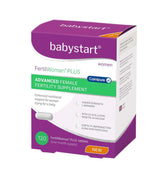
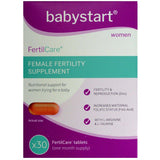
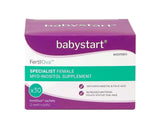
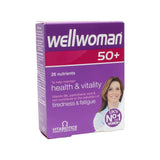
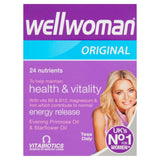
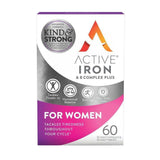

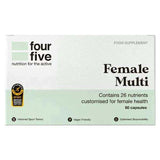
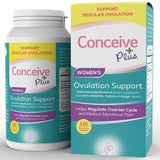
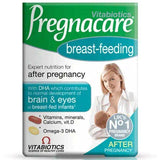
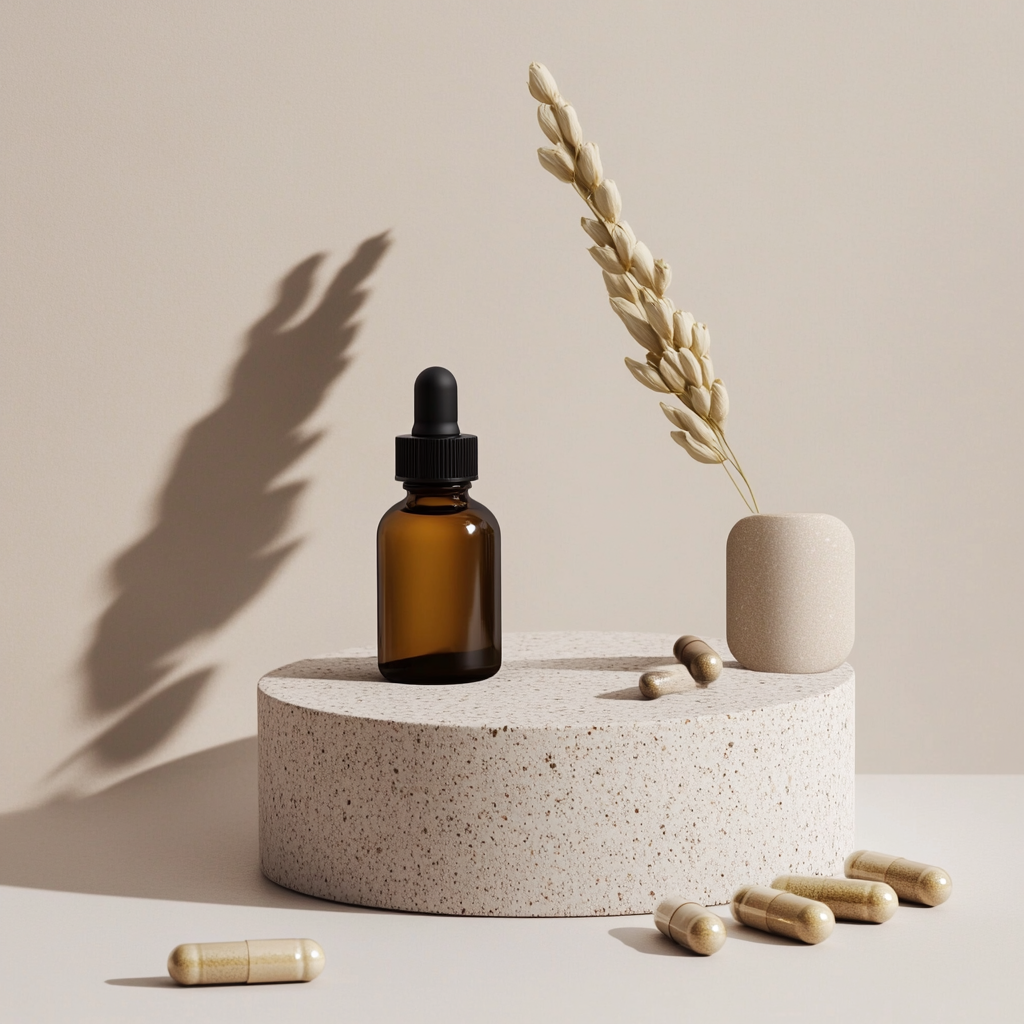

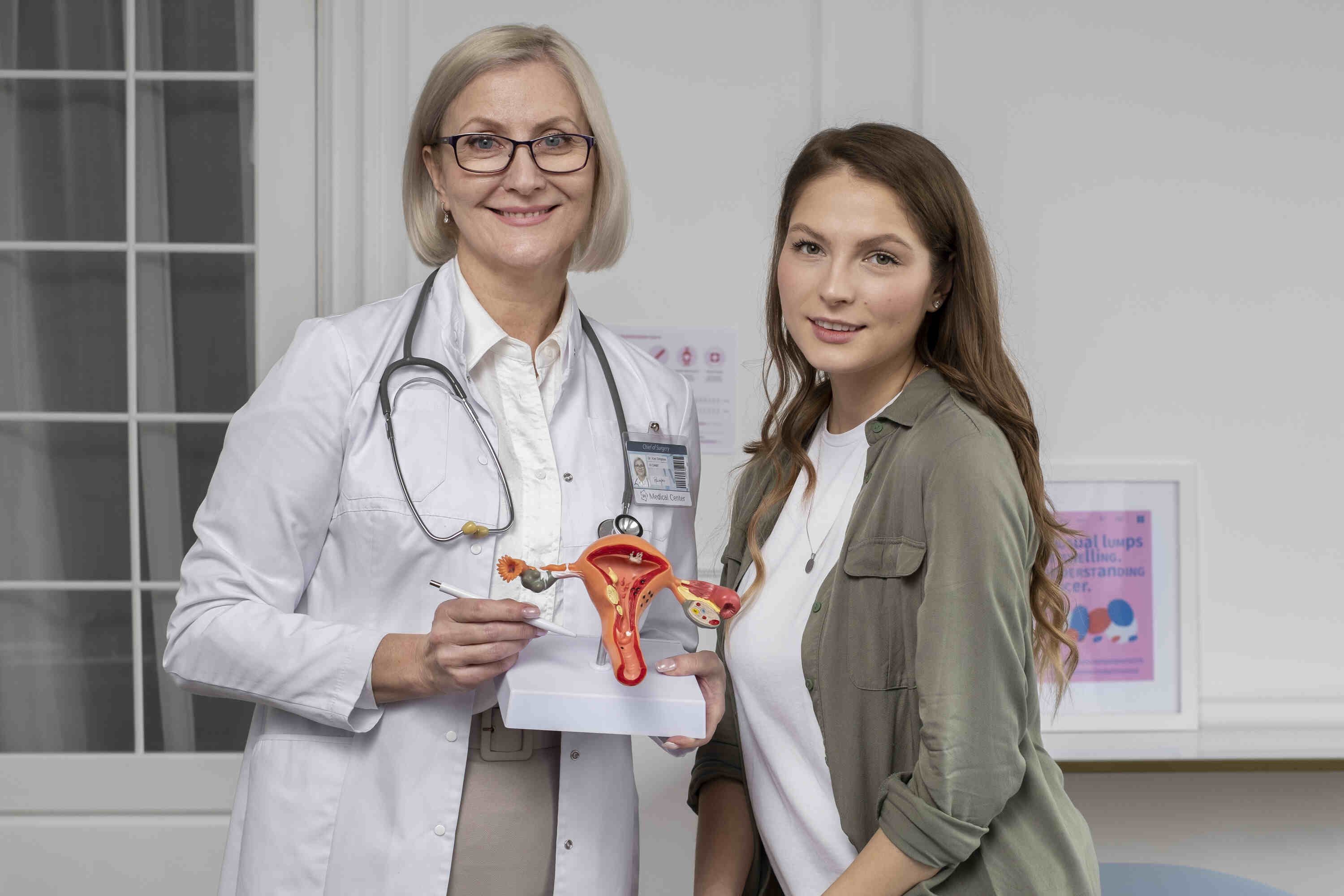

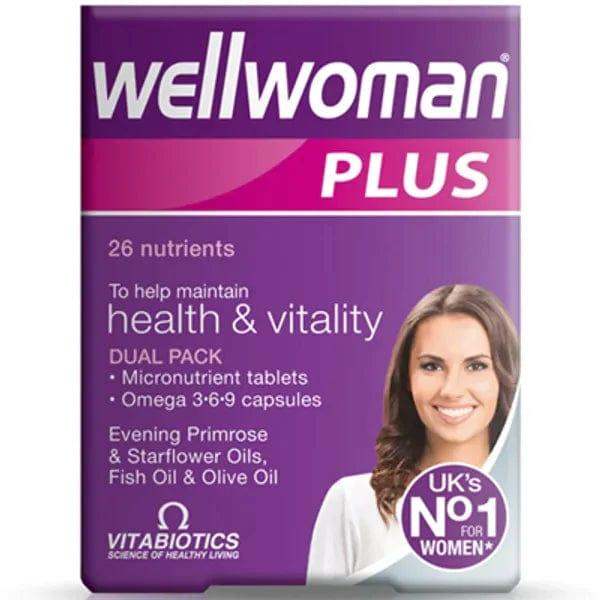

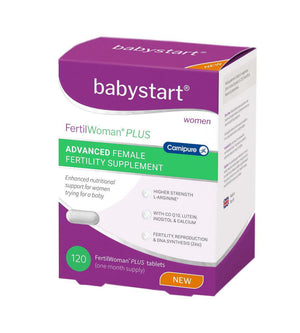
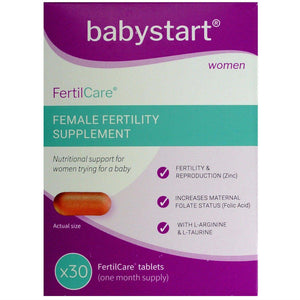
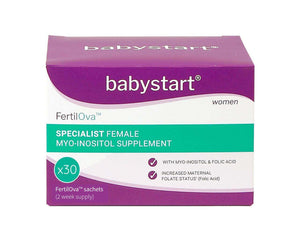
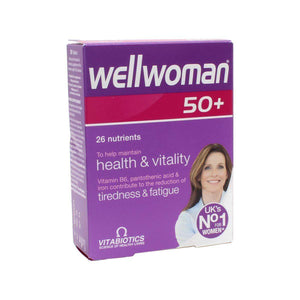
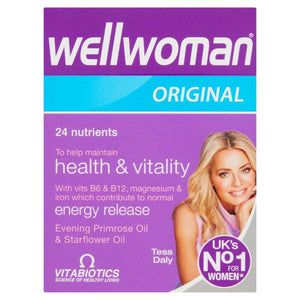
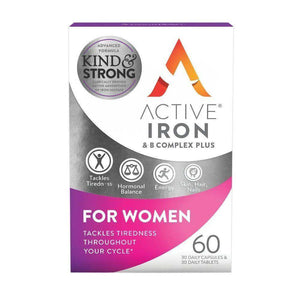


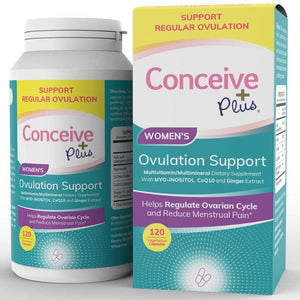
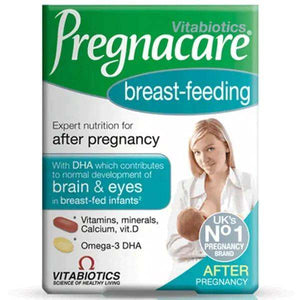




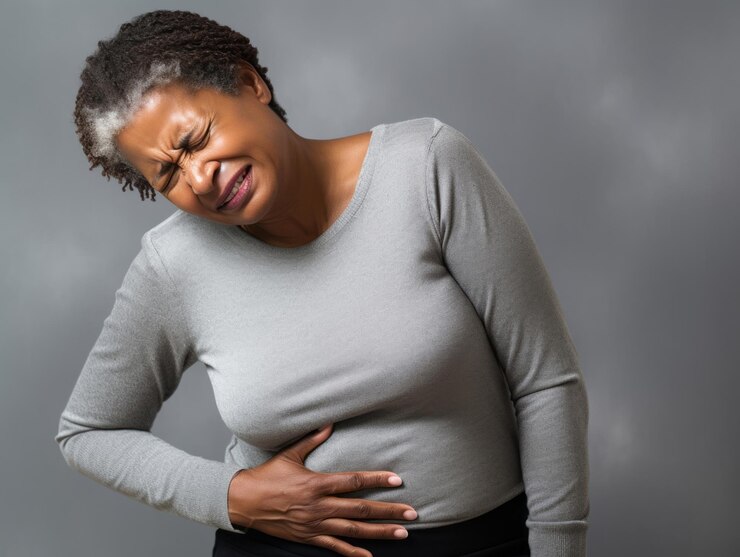





 Rated Excellent by 26,523+ Reviews
Rated Excellent by 26,523+ Reviews